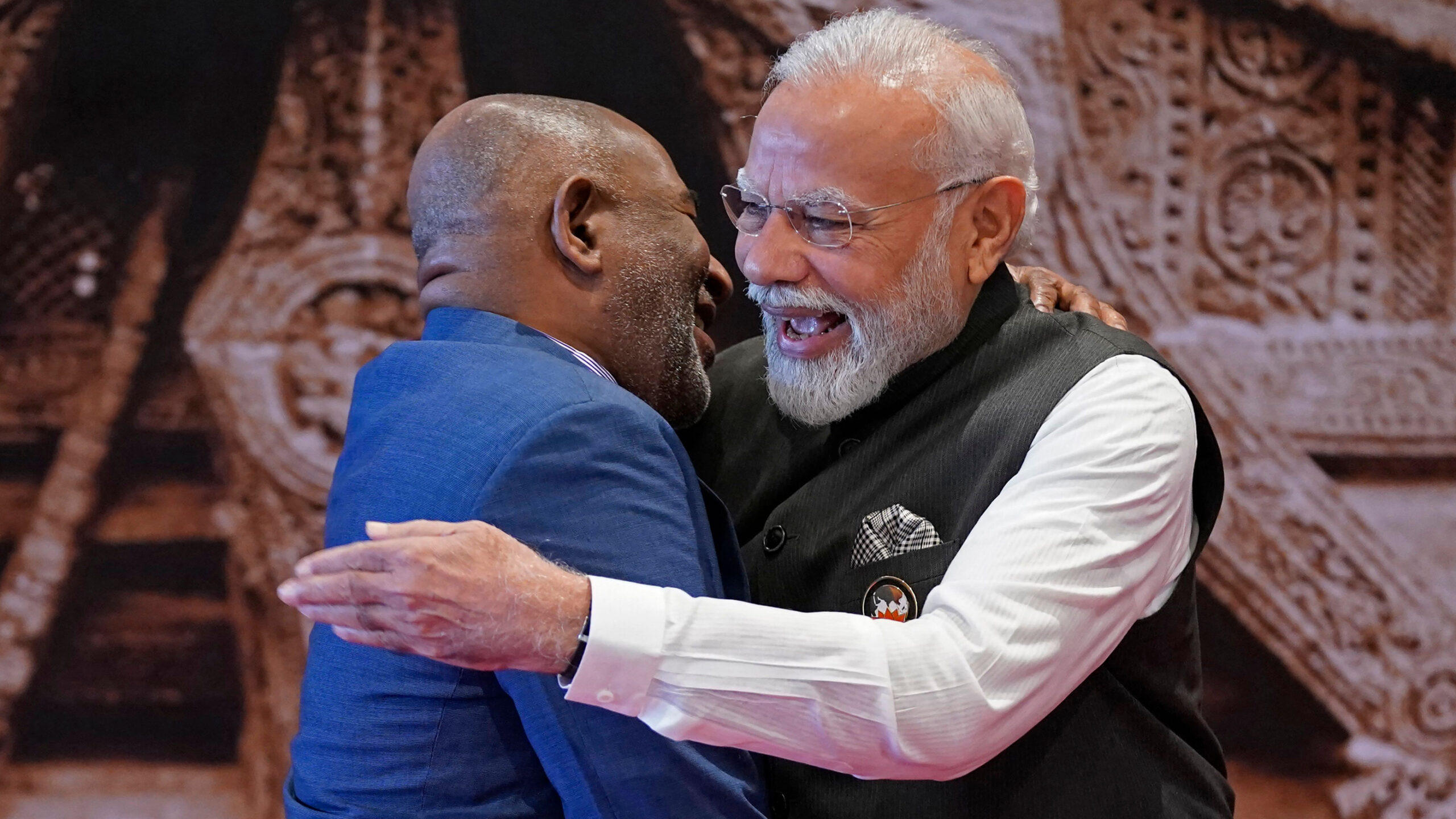Pledges by a group of Indian companies to invest $14bn in Nigeria are a bellwether of growing momentum in the private sector to support Indian prime minister Narendra Modi’s ambitions to increase the country’s influence in Africa.
The commitments, which were made by four conglomerates on September 6, came just three days before the G20 approved Mr Modi’s proposal to accept the African Union into the intergovernmental forum.
The new deals come amid an upswing in India’s investments in Africa, and have sparked debate about whether the country can chip away at the economic clout of its regional rival, China, on the continent.
“It has been a longstanding ambition of many in New Delhi for India to compete with China in Africa,” says Barnaby Dye, a lecturer in development politics at the University of York.
This has accelerated under the leadership of Mr Modi, who has sought to deepen strategic ties by, inter alia, proclaiming the 10-point Kampala Principles to guide India’s engagement with Africa, signing its first African free trade agreement with Mauritius in 2021, and last year hosting senior officials from 17 African states.
However, strict divisions between India’s private and public sectors means the government has not historically swayed companies’ investment agendas abroad.
“Unlike in China, a lot of India’s big corporations — both state-owned and private — are very much privately run and act relatively independently of diplomatic and strategic ambitions,” says Mr Dye.
This has limited the country’s ability to match Beijing’s investment drive, which has leveraged state funding and government-to-government agreements to become the continent’s second biggest source of greenfield capital expenditure (capex) since 2003, according to fDi Markets.
Investors, big and small
Nonetheless, this month’s $14bn-worth of investment pledges highlights that India’s corporates are increasingly tapping into opportunities presented by the continent with the fastest-growing population. It consists of Indorama Petrochemical’s plan to inject $8bn into its existing fertiliser and petrochemical facility in the Rivers state, Jindal Steel and Power’s expression of interest to establish a $3bn steel plant, SkipperSeil’s plan to roll out $1.6bn-worth of renewable power projects and Bharti Enterprises’ $700m expansion of its communication network.
Data from fDi Markets shows that Africa has been the biggest regional recipient of Indian greenfield capex over the past five years, up from fifth place over the five previous years. Last year Indian firms announced a record-high $22.2bn-worth of foreign direct investment into Africa.
Business groups suggest there is more to come. In a 2022 report, the Confederation of Indian Industry urged the country’s firms to increase their investments in Africa from $74bn to $150bn by 2030. The India-Nigeria Business Council launched last year to tap into bilateral trade and investment opportunities.
More on India:
Despite the Indian government’s historical hands-off approach, Harsh Pant, a professor at King’s College London, said it has started to play more of an enabling role by showing that “the state and private sector can help each other”. While pledges by the country’s conglomerates have hit the headlines, a major focus on small and medium-sized enterprises (SMEs) is an important part of this shift.
“The government [is] deliberately pushing some SMEs to do business” in Africa, he said. While in the past, the leaders of large firms would accompany the government on trips to the continent, “the business delegations today … are almost evenly poised, if not in favour of SMEs”, Mr Pant says.
Investment by SMEs also continues to be supported by India’s large diaspora in the likes of east Africa, South Africa and Ghana. “They have often been a key interlocutor for Indian firms to get business on the continent and drive Indian investments,” says Mr Dye. “Entrepreneurial individuals with contacts back in India have been able to bring across, and offer their services to, Indian companies wanting to expand on the continent.”




